
 |
| Scenes from Gent and Brussels. Top, the Gent Altarpiece. |
Of human joys and cares, Washed
marvellously with sorrow: A Trip to
Flanders Field, Ypres and Ghent
We woke up early on Sunday.
I
had thought we could make our way to Flanders field and then to Ghent
and Bruge.
But we got held up.
That couch looks like its from a movie
set with Eric Stoltz noted Jamesy, looking out the front window.
Irena chose the music, serenading us
with songs by Erasure and The Dead South, as we begin our road trip.
It really feels like the first world
war gave us this modern wreck of a world we live in. So we share stories about what we know about
the battles around Ypres, our destination for the day, where five battle left
people with in indelible image of the
futility of the conflict, stuck within the trenches, mud and quicksand sucking them back into
the ground.
James talked about the Guns of
August, the definitive book of the start of the war.
“When at last it was over, the war had many
diverse results and one dominant one transcending all others: disillusion.”
It was all about profits, explained
Jack Reed, during the war.
The collateral damage was the lost
lives, the hundreds of thousands from this little down alone,
where a quarter million people
perished.
At
Menin Road South Cemetery,
we encounter grave after grave, of kids, lost before their lives could begin.
Countless anonymous graves:
“Four Soldiers of the Great War,
known to God.”
Its hard not to well up, even now, a
century later.
I think of the 17 year-old kid.
And we make our way to Ypres,
stopping at the Menin
Gate Memorial, bearing the names of some 56,000 such people
who died with no known graves during the war.
They perform the Last Post every
night outside the memorial, with a reading of the For the Fallen, a poem by by
R L Binyan, followed by reveille.
For the
Fallen
Poem by Robert Laurence Binyon (1869-1943), published in The
Times newspaper on 21stSeptember 1914.
With proud thanksgiving, a mother
for her children,
England mourns for her dead across the sea.
Flesh of her flesh they were, spirit of her spirit,
Fallen in the cause of the free.
England mourns for her dead across the sea.
Flesh of her flesh they were, spirit of her spirit,
Fallen in the cause of the free.
Solemn the drums thrill: Death
august and royal
Sings sorrow up into immortal spheres.
There is music in the midst of desolation
And a glory that shines upon our tears.
Sings sorrow up into immortal spheres.
There is music in the midst of desolation
And a glory that shines upon our tears.
They went with songs to the battle,
they were young,
Straight of limb, true of eye, steady and aglow.
They were staunch to the end against odds uncounted,
They fell with their faces to the foe.
Straight of limb, true of eye, steady and aglow.
They were staunch to the end against odds uncounted,
They fell with their faces to the foe.
They shall grow not old, as we that
are left grow old:
Age shall not weary them, nor the years condemn.
At the going down of the sun and in the morning
We will remember them.
Age shall not weary them, nor the years condemn.
At the going down of the sun and in the morning
We will remember them.
They mingle not with their laughing
comrades again;
They sit no more at familiar tables of home;
They have no lot in our labour of the day-time;
They sleep beyond England's foam.
They sit no more at familiar tables of home;
They have no lot in our labour of the day-time;
They sleep beyond England's foam.
But where our desires are and our
hopes profound,
Felt as a well-spring that is hidden from sight,
To the innermost heart of their own land they are known
As the stars are known to the Night;
Felt as a well-spring that is hidden from sight,
To the innermost heart of their own land they are known
As the stars are known to the Night;
As the stars that shall be bright
when we are dust,
Moving in marches upon the heavenly plain,
As the stars that are starry in the time of our darkness,
To the end, to the end, they remain.
Moving in marches upon the heavenly plain,
As the stars that are starry in the time of our darkness,
To the end, to the end, they remain.
Its hard to fathom it all, standing
there.
We walk to Ramparts Cemetery,
looking at memorials for soldiers from as far as Nepal and New Zealand, who
fought for the British Empire, a part of a generational collective suicide.
The cemetery contains graves from
153 Brits, 10 Canadians, 11 Australians, 14 from New Zealand, and 5
unidentified soldiers.
Finishing we wander through Ypres,
over to Saint Peter’s church, built in 1073, subject to fires, battles, and
demolition during the Great War, only to be rebuilt in 1924.
Over lunch we wonder how much more
we can do in one day?
Its not going to be possible to get
to both Ghent and Bruges. So we hang out a bit. Tell some stories, look at the
old church and drink a pint.
Standing looking at the Ghent altarpiece,
I think its journey during world war two, Hitler’s claims on the work and its
rescue by the Monuments men who found it in a barn and returned its rightful
place at St Bravo’s Cathedral.
The iconic 15th-century
polytriptic attributed by Hubert and Jan van Eyckis one of mom’s favorite
pieces in the world.
Napoleon
stole it, the Calvinists about burned it, the Nazis aspired to own it, and one part
of it has been gone for some 80 years, its a wonder to stand there and see
it.
The final art of the day, was along
the Gent
graffitistraat before make our way
back to Brussels after a day for the ages.
“Don’t sweat the petty things, don’t
pet the sweaty things,” declared one defiant painter.
“Freedom is a choice,” penned
another.
And we got out of their, playing dance music on the way home. More Erasure and
Gunter’s Ding Dong song, laughing as much as we could, telling bad jokes.
Irena notes: “Little dog is always going to be a puppy.”
There is kharma out
there in the world, she reminded us, on our way back to St Catherine square in
Brussels, where we drank and played again.
Later when I got home, I
though about the poet James talked about in the car, the dead, consumed in the
grownup’s conflict.
Our favorite food writer,
Anthony Bourdain, killed himself a few days later. You needed Anthony Bourdain, as Caroline says, the man who
knew everything was shit but still saw the beauty and adventure of it all. RIP.You
wanted to be with him, sitting in a field in Brazil, drinking laughing at the
world. He said he’d never dine with Trump. I loved his Paris episode about
getting the spins after drinking absinthe - honest, painful and adventuresome.
There are different suicides, the Hemmingways
when a person runs out of gas at the end of his life, having written and drunk their
fill, but Anthony seemed to have more in him.
Now we are all grieving, missing him. We'll miss him, like all the dead.
As my friend Kate wrote about her girlfriend who killed herself two years ago:
"All the conversation about suicide lately, while important and needed, has been difficult for me, because we are coming up on the 2nd anniversaries of my Kate’s suicide. I say anniversaries because there is June 16th, the day she chose to die, and June 18th, the day we found her. It is not exaggerating to say that losing her changed every single aspect of my life. The silence after the end of our 21 year conversation still shocks me sometimes. This is not an if-only-she-had-gotten-treatment thing- she had years and years and years of all kinds of treatment. And yes, our nation needs more mental health services, specifically quality mental health services, but the truth is that help doesn’t always, can’t always help. Sometimes peoples’ pain is just too deep. I miss Kate unbelievably, but I also witnessed her pain and I am glad she is no longer suffering."
As my friend Kate wrote about her girlfriend who killed herself two years ago:
"All the conversation about suicide lately, while important and needed, has been difficult for me, because we are coming up on the 2nd anniversaries of my Kate’s suicide. I say anniversaries because there is June 16th, the day she chose to die, and June 18th, the day we found her. It is not exaggerating to say that losing her changed every single aspect of my life. The silence after the end of our 21 year conversation still shocks me sometimes. This is not an if-only-she-had-gotten-treatment thing- she had years and years and years of all kinds of treatment. And yes, our nation needs more mental health services, specifically quality mental health services, but the truth is that help doesn’t always, can’t always help. Sometimes peoples’ pain is just too deep. I miss Kate unbelievably, but I also witnessed her pain and I am glad she is no longer suffering."
The Dead
These hearts were woven
of human joys and cares,
Washed marvellously with
sorrow, swift to mirth.
The years had given them
kindness. Dawn was theirs,
And sunset, and the
colours of the earth.
These had seen movement,
and heard music; known
Slumber and waking;
loved; gone proudly friended;
Felt the quick stir of
wonder; sat alone;
Touched flowers and furs
and cheeks. All this is ended.
There are waters blown
by changing winds to laughter
And lit by the rich
skies, all day. And after,
Frost, with a gesture,
stays the waves that dance
And wandering
loveliness. He leaves a white
Unbroken glory, a
gathered radiance,
A width, a shining peace, under the night.
 |
| Magic hour sunlight after a long day. |












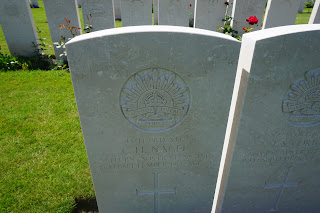
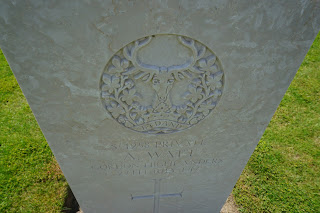




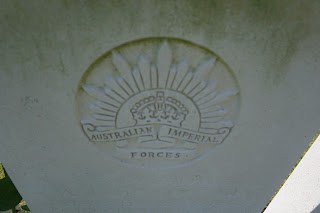


















































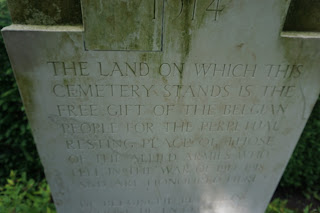






























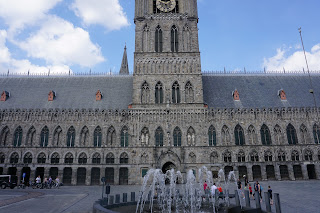





























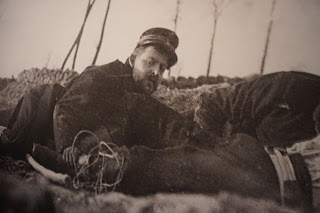










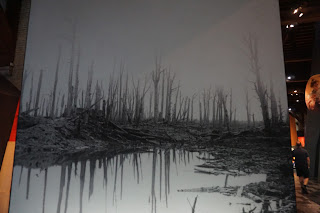




















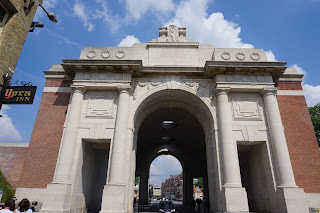





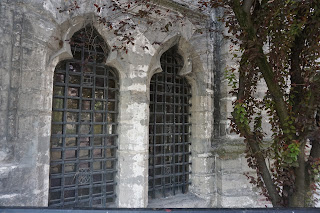
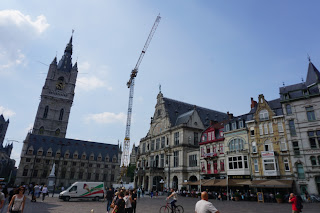


























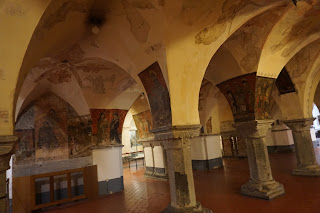





















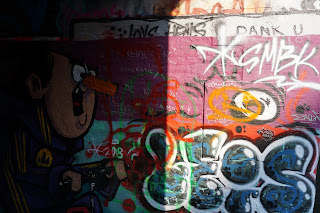













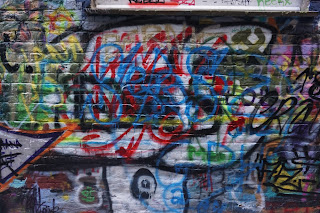














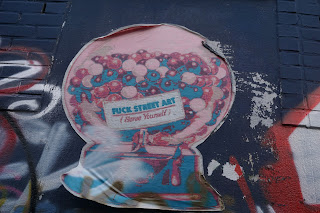



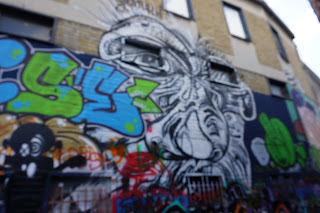















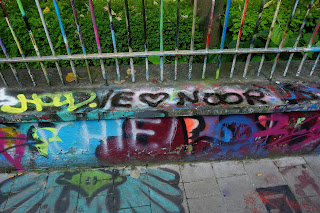












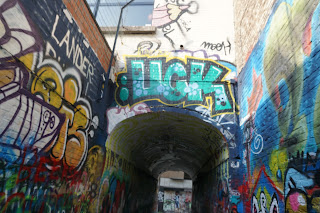
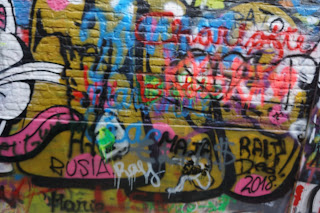










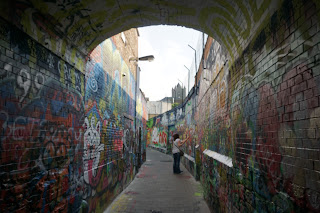
























No comments:
Post a Comment